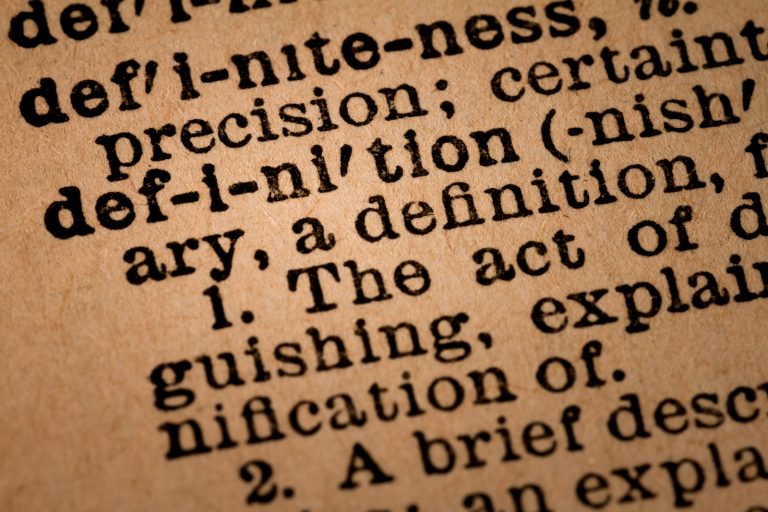Looking to buy a home and wondering what all this crazy lingo is about? Here’s the scoop on what these words and acronyms are trying to convey in our Complete Mortgage Glossary: (You might want to bookmark this page.)
Adjustable Rate Mortgages or “ARMs”:
These are loans with a fixed-rate during an initial period, usually 5, 7 or 10 years. After the fixed-rate period, your interest rate will adjust once per year – either up or down depending on market conditions. ARMs are almost always lower in initial rate than fixed loans and can offer huge savings to first-time home buyers, especially those who don’t plan on staying in their new home for much longer than the initial fixed-rate period.
Amortization:
The gradual reduction of debt over the term of the loan. Amortization happens through repayment of the principal balance. Payments of interest due do not affect amortization.
Annual Percentage Rate or “APR”:
APR is the annual rate charged for borrowing the mortgaged amount, and is expressed as a percentage that represents the actual yearly cost of funds over the term of a loan.
Appraisal:
A written estimate of a property’s current market value, performed by a licensed appraiser.
Closing:
The conclusion of your real estate transaction when documents are signed, the property ownership legally changes hands, and funds are disbursed.
Closing Costs:
Expenses that are additional to the cost of the property, which can include things like title insurance, appraisal, processing, underwriting and surveying fees.
Credit Report:
A report from an independent agency detailing credit history and previous and current debt to help determine creditworthiness. You have a legal right to view your credit report for free once every 12 months. The three main companies that each compile credit reports are Equifax, Experian, and TransUnion.
Credit Score:
This is a number created from your credit report that is designed to predict your riskiness as a borrower. It predicts creditworthiness based on credit card history, outstanding debt, type of credit, bankruptcies, late payments, collection judgments, length and activity of credit history and number of credit lines.
Deed:
The legal document that transfers property from one owner to another.
Down Payment:
This is the amount of your home’s purchase price paid upfront.
Earnest Money:
Earnest money is paid from the buyer to the seller to signal that they intend to buy the property, which will not be finalized until financing, inspections and other necessities have happened. If the purchasing process fails, the buyer will not likely receive the earnest money back if the transaction failure was on the buyers part. The seller will likely not get to keep the money if the seller’s actions prevent a completed transaction. The terms should be laid out in a contract. The Earnest money is usually paid by certified check, personal check or a wire transfer into a trust or escrow account that is held by a real estate brokerage, legal firm or title company. The earnest money paid is put toward the buyer’s down payment when the transaction is finalized.
Equity:
The monetary difference between your mortgage balance due and the actual market value of your home.
FHA Loan:
Fixed- or adjustable-rate loan insured by the Federal Housing Administration. FHA loans are designed to make housing more affordable, particularly for first-time home buyers.
Fixed-Rate Mortgages:
Mortgage with an interest rate and a payment that don’t change over the term of the loan. Should the current market interest rate fall below your fixed rate, contact your mortgage expert right away to discuss the benefits of refinancing.
Interest-Only Loan:
Mortgage that gives you the option of paying just the interest, or the interest and as much principal as you want in any given month during an initial period of time.
Interest Rate:
The percentage of the outstanding balance charged by a lender as a fee for borrowing money.
Loan Contingency:
A stipulation of a purchase contract that protects you from obligation. It means that if anything goes wrong with the purchase of your new home or for some reason the lender cannot make a loan for you, then you would be released from obligation to buy the home.
Loan Disclosure:
The loan disclosure statement is an important source of clear, concise, non-technical information about the loan. For a mortgage, the disclosure statement describes the terms of the loan, such as the interest rate, the amount borrowed, the repayment schedule, fees, disbursement conditions, collateral requirements, insurance requirements, prepayment rights (or penalties), and any other expectations of the lender and any additional obligations of the borrower.
Lock or Lock-In:
A lender’s guarantee of an interest rate for a set period of time. The lock-in protects you against rate increases during that time.
Points (or Discount Points):
Points are upfront fees paid to the lender at closing. Typically, one point equals one percent of your total loan amount. Points and interest rates are inherently connected. The more points you pay, the lower your interest rate.
Pre-Approval:
Mortgage pre-approval means you already passed the approval process and therefore are guaranteed to be immediately granted the loan if you apply. Your pre-approval will be assigned a dollar value so you know how much of a loan you are guaranteed to have access to.
Pre-Qualified:
A pre-qualified status is just the amount for which you might expect to be approved. It can be helpful to know what price range of homes to look at, and can give you confidence in getting a loan, but does not guarantee anything.
Principal:
The balance (not counting interest) owed on a loan. 30 year fixed-rate mortgages are amortized so that the longer you have the loan, the more principal you reduce with each payment.
Private Mortgage Insurance (PMI):
Insurance to protect the lender in case the borrower defaults on the loan. With conventional loans, PMI is typically not required with a down payment of ≥ 20% of the home’s purchase price.
Title Search:
Examination of municipal records to ensure that the seller is the legal owner of a property and that there are no liens or other claims against the property.
Underwriting:
In mortgage lending, the process of determining the risks involved in a particular loan and establishing suitable terms and conditions for the loan.


